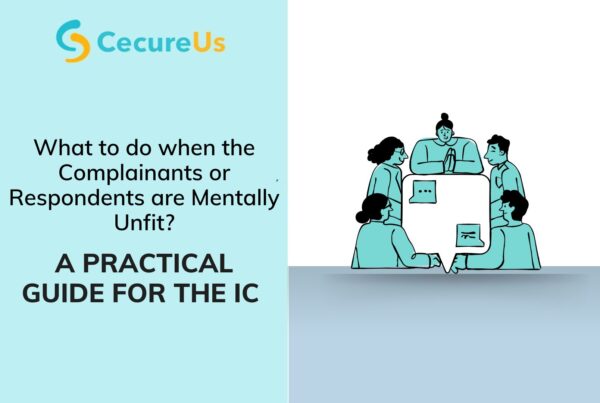GENESIS OF THESE REGULATIONS
The corporate world is witnessing a significant increase in female employees. Thanks to the PoSH act, 2013, promising safe workplaces for female employees, this has become achievable. This increase in the number of female employees participating in the corporate workspace is also an indicator that the number of female students accessing the higher educational institutes has also improved.
According to a report in 2015, India has 760+ universities and affiliated educational institutes and over 38,498 colleges. According to a study by UGC India, The University Grants Commission of India ( UGC is the governing body that grants affiliations and recognition to all educational institutes and also ensures that all institutes maintain the academic standards set by the UGC) the number of cases of sexual harassment reported between 01/04/2018 to 31/03/2019 in the higher educational institutes where 171. Such factors were indicators to the UGC that legislation dedicated to higher educational institutes is mandatory.
Although the PoSH Act categorically includes higher educational institutes within its definition under section 2(o) of its act, to stress its implication concerning the higher educational institutes, the UGC, along with the Ministry of Human Resource Development, drafted the University Grants Commission (Prevention, prohibition, and redressal of sexual harassment of women employees and students in higher educational institutions) Regulations, 2015, keeping the benefits of PoSH act to the female employees in mind.
SPECIAL FEATURES OF THE UGC REGULATIONS
UGC Regulations emphasized the responsibility of Higher Educational Institutes to act decisively against all gender-based violence against employees and students of all sexes, including the third gender. The regulation states that sexual harassment is gender-neutral, and educational institutes should act upon complaints of both male and female employees and all students, male, female, and third gender.
GENDER NEUTRALITY CLAUSE
These regulations of the UGC have taken a revolutionary initiative by adopting a gender-neutral approach which means that irrespective of the gender, the victim can lodge a complaint, and the UGC PoSH regulations shall protect the rights of students enrolled at the institute and ensure that they are all safe from sexual abuse regardless of the gender.
Regulation 2(k) of the said regulation defines sexual harassment. Regulation 3 (d) of the UGC PoSH regulation states that Higher Educational Institutes must act swiftly in the wake of any sexual harassment against the staff and students, whether male, female, or third gender, recognizing that primarily female employees and students are subjected to sexual harassment. But this UGC PoSH law does not exclude male students and students of the third gender.
In this PoSH regulation, this clause of gender impartiality is revolutionary in many ways. It has helped to interpret the discrimination and abuse of male, female, and third gender students and employees on par with the corporate world, which is hierarchical. For instance, it helps resolve incidents between the student and teacher in educational institutes, employees (male, female, or third gender) of these institutes, and employers. Moreover, this gender-neutral UGC PoSH anti-sexual harassment regulation would help perceive sexual misconduct better and its consequences for men and sexual minorities.
This regulation was recently upheld in the case law of Malabika Bhattacharjee vs. Internal Complaints Committee, Vivekananda College, and Ors.
CASE LAW- Malabika Bhattacharjee v. Internal Complaints Committee, Vivekananda College and Ors.
In this case, which was presented before the single bench of Justice Sabyasachi Bhattacharyya, the concern was whether a lawsuit lodged against a Respondent of the same gender as the complainant was legitimate or not.
This case challenged the internal committee of a higher educational institute as it had refused to accept a complaint because the complainant and respondent both belonged to the same gender, i.e., female. In this case, the petitioner argued that such complaints aren’t valid.
Relying upon the case example of Vishaka and others versus the State of Rajasthan, the bench contended that the fact and principles of gender equality depend on whether the complainant falls under the periphery of the PoSH Act 2013 or not. Therefore if the gender of both parties is the same, then the issue of gender equality doesn’t arise.
On the other hand, the respondents relied upon the University Grants Commission (Prevention, Prohibition and Redressal of Sexual Harassment of Women Employees and Students in Higher Educational Institutions) PoSH Regulations, 2015 and stated that the regulations include a wide range of people, including people of the same gender, employees, and students, and call for action in cases of sexual assault. They also argued that this, when combined with the concept of Respondent in Section 2 (m) of the PoSH 2013 Act that refers to a person as a respondent, it is evident that same-gender allegations can be considered under the PoSH 2013 Act, formed for the benefit of employees in an organization.
The High Court determined that nothing about Section 9 of the PoSH 2013 Act [referenced in Section 2(m)] prevents a same-gender lawsuit under the PoSH Act. The court also said that the definition of sexual harassment as written in section 2(n) should be interpreted in the context of the dynamic society we live in now, which has abolished section 377 and has initiated a debate on the legalization of same-gender marriage.
Also, the definition of sexual harassment in section 2(n) of the PoSH act talks about infringement of personal rights nowhere includes that an individual from the same gender cannot infringe personal liberty. Regardless of the sexuality or gender of the perpetrator, any individual (a student or an employee of the institution) of any gender can feel potentially threatened or sexually abused if their dignity is violated by any of the actions contemplated in section 2(n) of the PoSH act.
STEPS THAT MUST BE TAKEN
Understanding the PoSH Act and the UGC Regulations clarifies that the higher educational institutes must take steps to ensure that the educational institutions are safe for all. The below-mentioned steps are necessary for the educational institutes to ensure that they can build a safe environment for the students, employees, academicians, and teachers.
- Formation of internal complaints committee as per the UGC PoSH regulations The composition as per regulation 4 of the UGC PoSH regulations is as follows
- A presiding officer who shall be a female faculty member at a senior level and is nominated by the executive authority
- Two faculty members and two non-teaching employees, nominated by the executive authority
- Three students, who shall be elected through a democratic process
- One member from the non-government organizations
- This constitution should ensure that women constitute half of the total members.
- Duties of the internals complaint committee The committee shouldn’t be for mere compliance or made for moral policing.
- Any case involving sexual assault should be brought to the committee’s attention, as per the PoSH regulation.
- Due to the sensitivity of gender-related concerns, the committee will be approachable and not infringe on the privacy of those concerned.
- After the committee has been established, the members may determine the protocol for complaint resolution, abiding by the UGC PoSH regulations.
- The Committee should meet twice a year, with additional meetings if needed to address any concerns or grievances that might arise.
- Gender sensitization This means spreading awareness relating to issues about gender and creating an environment that inculcates a sense of personal security and gender justice. This can be achieved by orienting students and employees through seminars and workshops.
Conclusion
These regulations have been able to adapt to the dynamic world we live in by including clauses of gender neutrality. These PoSH regulations have helped to spread awareness in educational institutes. These regulations on paper represent a world wherein there is a sense of personal liberty, and if they are breached, their grievances are heard. The educational institutes should ensure that they don’t take them as mere compliance but instead act upon these regulations and help build a secure environment.
ABOUT THE AUTHOR
Hemansh Tandon is a fourth-year law student from Indraprastha University. He is an avid reader and has a keen interest in writing prose and verses.
For more information on Prevention of Sexual Harassment(POSH), EAP (Employee Assistance Programs), D&I (Diversity and Inclusion) offerings by CecureUs , please contact connect@cecureus.com or call us at +91-7200500221




